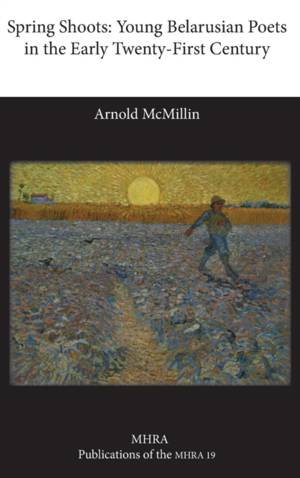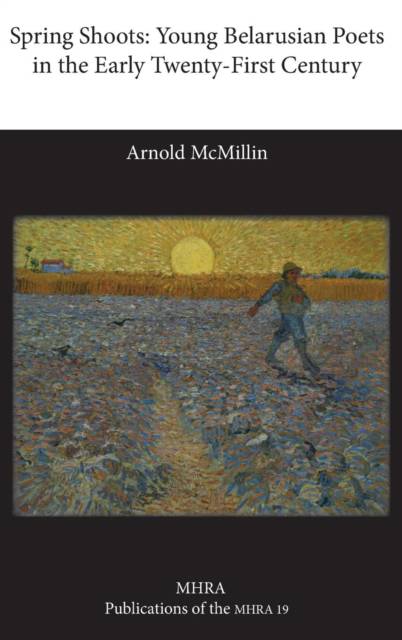
- Afhalen na 1 uur in een winkel met voorraad
- Gratis thuislevering in België vanaf € 30
- Ruim aanbod met 7 miljoen producten
- Afhalen na 1 uur in een winkel met voorraad
- Gratis thuislevering in België vanaf € 30
- Ruim aanbod met 7 miljoen producten
Zoeken
Spring Shoots
Young Belarusian Poets in the Early Twenty-First Century
Arnold McMillin
Hardcover | Engels
€ 63,95
+ 127 punten
Omschrijving
Spring Shoots introduces individually the early work of two score young Belarusian poets, all of whom began writing after the start of the present regime. This is the first such survey in any language, including Belarusian. All poetic illustrations are cited in the original and accompanied by English prose translations. The poets' work is presented in eight loosely thematic groups: the historical heritage, religion, protest at alienation and repression, use and defence of the language, the lyrical impulse, humour, performance poetry and the theme of writing itself and poetic inspiration. Also very important in these poems are the joys and tribulations of love. By using the Belarusian language, the poets are helping to save it from decades of erosion and official devaluation, so that their discussion of it is often poignant, particularly as language is a central part of the also suppressed historical heritage. Other types of verse such as humorous, lyrical or that for performance, are less central to the Belarusian situation, but the angry and bitter protest poems serve as perhaps a release valve, as small editions of poems are far less conspicuous than the expression of such feelings on the street, which always meets bitter reprisals.
Specificaties
Betrokkenen
- Auteur(s):
- Uitgeverij:
Inhoud
- Aantal bladzijden:
- 200
- Taal:
- Engels
Eigenschappen
- Productcode (EAN):
- 9781781882276
- Verschijningsdatum:
- 8/10/2015
- Uitvoering:
- Hardcover
- Formaat:
- Genaaid
- Afmetingen:
- 156 mm x 234 mm
- Gewicht:
- 458 g

Alleen bij Standaard Boekhandel
+ 127 punten op je klantenkaart van Standaard Boekhandel
Beoordelingen
We publiceren alleen reviews die voldoen aan de voorwaarden voor reviews. Bekijk onze voorwaarden voor reviews.








